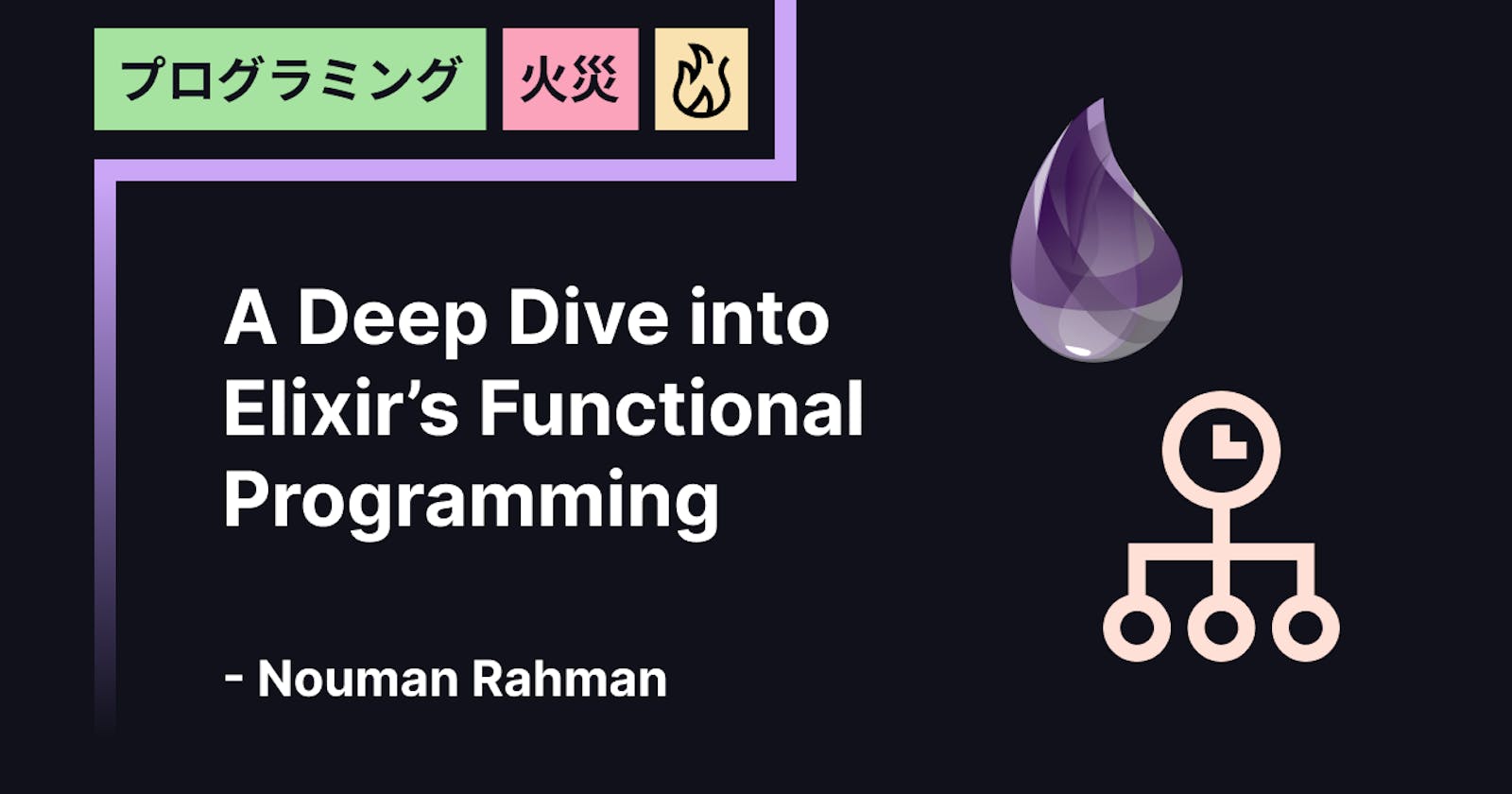Functional Programming with Elixir: A Deep Dive into Concurrent and Fault-Tolerant Systems
Functional programming and concurrency are two powerful pillars of Elixir's design, enabling developers to build robust and scalable systems. In this article, we will embark on a journey exploring the depths of functional programming and concurrency in Elixir, uncovering their strengths in creating fault-tolerant distributed systems. Along the way, we will illustrate their application through a web development example and a distributed computing scenario.
Understanding Elixir's Functional Foundation
Elixir's roots in functional programming make it an exceptional language for building clean and maintainable code. Immutability, a core tenet of functional programming, ensures that once a value is assigned, it remains unchanged throughout its lifetime. This principle simplifies reasoning about code, minimizes unexpected side effects, and facilitates concurrent programming.
Let's revisit the factorial calculation example to see how functional programming enhances code clarity:
defmodule Math do
def factorial(0), do: 1
def factorial(n) when n > 0 do
n * factorial(n - 1)
end
end
The recursive factorial function elegantly expresses the mathematical concept without the need for mutable states or loops.
The Elixir Concurrency Model: Lightweight Processes
Elixir's concurrency model is built on the concept of lightweight processes, also known as actors. These processes are isolated from each other, allowing them to run concurrently without interfering or sharing mutable states. This isolation results in fault-tolerant systems, where the failure of one process doesn't compromise the entire application.
Concurrent Web Development with Phoenix
Phoenix, Elixir's web framework, perfectly embodies the concurrent nature of the language. When handling web requests, Phoenix creates a lightweight process for each incoming request, efficiently handling multiple requests simultaneously. This capability ensures a responsive web application even under heavy traffic.
Let's consider a simple web application that calculates the factorial of a number using Phoenix:
defmodule FactorialCalculatorWeb.FactorialController do
use FactorialCalculatorWeb, :controller
def index(conn, _params) do
render(conn, "index.html")
end
def calculate(conn, %{"number" => number_str}) do
number = String.to_integer(number_str)
result = Math.factorial(number)
render(conn, "result.html", result: result)
end
end
The web controller above leverages the concurrency model to handle multiple requests concurrently, offering users a seamless experience.
Fault Tolerance in Distributed Systems
Elixir's ability to build fault-tolerant systems is inherited from the Erlang VM. In Elixir, each process is supervised by a higher-level process called a supervisor. If a process fails, the supervisor automatically restarts it, ensuring that the system remains operational despite failures.
Distributed Computing with Elixir Processes
Let's explore how Elixir's concurrency model and fault tolerance can be applied to distributed computing. Consider a distributed factorial calculator:
defmodule FactorialCalculator do
def calculate(factorial_of) do
self() |> Task.async(fn -> Math.factorial(factorial_of) end)
end
defp handle_result({:ok, result}) do
IO.puts("Factorial Result: #{result}")
end
defp handle_result({:error, reason}) do
IO.puts("Calculation failed: #{reason}")
end
end
defmodule Math do
def factorial(0), do: 1
def factorial(n) when n > 0 do
n * factorial(n - 1)
end
end
In this example, the calculate/1 function spawns a new process using the Task.async/1 function for each factorial calculation, allowing us to perform concurrent calculations efficiently.
Embracing the Functional and Concurrent Paradigm
Elixir's unique blend of functional programming and concurrent computation empowers developers to build expressive and robust applications. Whether it's web development with Phoenix or distributed computing scenarios, Elixir shines as a versatile language that embraces functional principles while providing unparalleled concurrency and fault tolerance.
As the demand for highly concurrent and fault-tolerant systems continues to grow, Elixir's emphasis on functional programming and lightweight processes positions it as a formidable choice for modern software development. By diving deep into functional programming and concurrency with Elixir, developers can unlock the full potential of the language and build software that excels in performance, maintainability, and reliability.
Conclusion
Elixir's fusion of functional programming and concurrent computation makes it a standout language in the world of modern software development. Its strong emphasis on immutability, pattern matching, and lightweight processes offers a powerful toolkit for building highly performant, scalable, and fault-tolerant systems.
Throughout this deep dive into functional programming and concurrency with Elixir, we have explored its strengths in various domains. From web development with Phoenix, where concurrent lightweight processes handle incoming requests efficiently, to distributed computing scenarios, where fault-tolerant processes work in unison, Elixir showcases its versatility.
The functional foundation of Elixir empowers developers to write clean, expressive, and maintainable code. Immutability ensures predictability and minimizes unexpected side effects, while pattern matching and higher-order functions enhance code clarity and reusability.
Moreover, Elixir's unique concurrency model, built on lightweight processes and supervised actors, facilitates highly concurrent and fault-tolerant systems. The ability to handle multiple tasks concurrently and recover from failures gracefully results in resilient applications that can thrive under demanding workloads.
As the adoption of functional programming and concurrent computing grows, Elixir remains at the forefront as a powerful language that successfully integrates these principles. Its growing ecosystem and enthusiastic community continue to drive innovation and reinforce Elixir's position as an excellent choice for functional programming enthusiasts and developers worldwide.
In conclusion, functional programming with Elixir offers developers a robust and scalable foundation for creating cutting-edge applications. Whether you are building web applications, distributed systems, or parallel processing applications, Elixir's functional and concurrent capabilities provide an exceptional platform to achieve your goals. As you dive deeper into the world of Elixir, you will discover a language that empowers you to bring your most ambitious ideas to life, making it a truly rewarding experience for any software developer.
